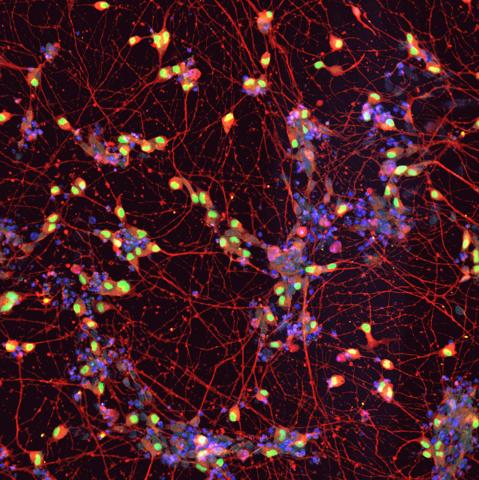Reactions to the analysis linking certain gastrointestinal diagnoses with Parkinson's disease
Certain intestinal issues, such as constipation, difficulty swallowing, and irritable bowel syndrome, could be early warning signs of Parkinson's disease, according to a study published in the journal Gut. The study compared tens of thousands of patients from a network of medical records in the United States.

Tim - Parkinson
Tim Bartels
Group Leader at the UK Dementia Research Institute at UCL.
The study firmly establishes association between particular forms of gut dysfunction (constipation, gastroparesis and dysphagia) preceding the development of motor symptoms that are usually used to diagnose clinical Parkinson’s Disease. Given that the disease has typically already progressed to large scale neurodegeneration in the substantia nigra of patients that present with motor symptoms, any earlier clinical signs and potential biomarkers would be highly valuable for earlier (and therefore more effective) treatment and drug targeting.
An interesting side point of the study is the seemingly protective association of appendectomy with Parkinson’s Disease, implying in addition that within the GI the appendix might be the origin of the pathological insult that then spreads throughout the gut and ultimately to the brain. Since the latter association was within the range of potential surveillance bias, this has to be further validated, however.
The association found here therefore firmly establishes that the gut might be a prime target to search for biomarkers in humans, or to develop better model systems to understand gut dysfunction in Parkinson’s Disease in order to find drug targets.
Clare - Parkinson
Clare Bale
Associate Director of Research, Parkinson's UK's.
This comprehensive study used US medical records to explore the links between a variety of gut issues and the development of Parkinson's.
The findings add further weight to the growing evidence that problems like constipation, difficulty swallowing and delayed stomach emptying (gastroparesis) may be early warning signs of Parkinson's.
Interestingly, people who had their appendix removed appeared to be less likely to develop Parkinson's, while the authors noted that gastroparesis was particularly likely to precede a diagnosis of Parkinson's in women and younger people.
Understanding how and why gut issues appear in the early stages of Parkinson's could open up opportunities for early detection and treatment approaches that target the gut to improve symptoms and even slow or stop the progression of the condition.
Kim - Parkinson
Kim Barrett
Vice Dean for Research and Distinguished Professor of Physiology and Membrane Biology, UC Davis (University of California, Davis).
It has long been understood that the brain communicates with the gut and some have hypothesized that factors emanating from the gut could trigger the development of neurological conditions, such as Parkinson’s disease (PD). The paper in Gut makes an important contribution by showing that some gastrointestinal diagnoses are linked to a later diagnosis of PD, suggesting that it may be important for doctors to take note of these GI conditions when evaluating patients at risk for PD, even prior to the onset of neurological symptoms. The authors’ conclusions are well-supported by the large number of patient health records that were compared in the study, and by the fact that they analyzed the association between GI conditions and PD in both directions and obtained the same results (i.e., do those with PD have a history of these GI conditions and do those with specific GI conditions go on to develop PD in the ensuing five years).
Moreover, the investigators were careful to minimize the impact of surveillance bias in their analysis (i.e., the more you look, the more you find). However, the subjects whose records were reviewed were less racially and ethnically diverse than the US population overall, meaning that it might not be possible to extrapolate the conclusions to all groups or indeed those outside the US. Also, the findings are purely correlative, and it remains possible that both GI conditions and PD are independently linked to an as yet unknown third risk factor – the work reported cannot ascribe causality. Nevertheless, the conclusions may have clinical relevance and certainly should prompt additional studies to identify underlying mechanisms because there are potential implications for early treatment.
- Research article
- Peer reviewed
- Observational study
- People



